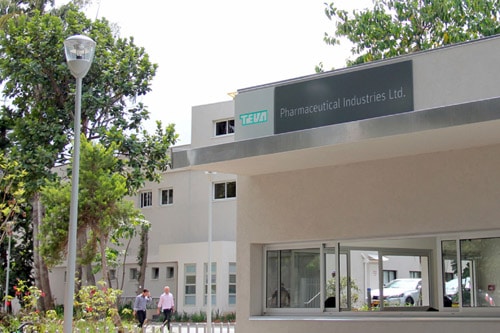
Teva has had a challenging time of late, but notched up some good news after the FDA approved Austedo, its drug for adults with the movement disorder tardive dyskinesia.
The approval is the second for Austedo (deutetrabenazine) after being cleared by the US regulator for chorea – another movement disorder – in patients with Huntington’s disease earlier this year. Now, the Israeli company can compete toe-to-toe with Neurocrine Biosciences’ recently approved Ingrezza (valbenazine), which became the first drug to be approved for tardive dyskinesia in the US in April.
Tardive dyskinesia, a neurological disorder characterised by repetitive involuntary movements such as grimacing, sticking out the tongue and smacking the lips. It is most commonly seen as a side effect of certain medicines used to treat psychoses such as schizophrenia, bipolar disease and the gastrointestinal therapy metoclopramide.
Given the high number of sufferers – perhaps as many as 500,000 people in the US alone – analysts have predicted that the market for an effective treatment could top $2bn a year. Ingrezza made around $6m in its first two months on the market, according to Neurocrine’s second-quarter results statement.
Teva says the fact that Austedo needs to be titrated to a final dose offers increased dosing flexibility and “the ability to focus on directly treating the movement disorder and not disrupt the ongoing treatment for the underlying condition”, according to its head of R&D Michael Hayden.
In response, Neurocrine maintains Ingrezza – which is delivered a one of two fixed dose once a day while Teva’s drug is taken twice-daily – will improve compliance with therapy and be more appealing to patients. It remains to be seen which case proves most compelling to prescribers.
For Teva, Austedo’s approval is a boost at a time when it has had to pare back sales forecasts and reduce headcount in the face of lacklustre growth in its generics business, mainly due to pricing pressure, and the hangover effect of losing patent protection for multiple sclerosis drug Copaxone (glatiramer acetate), which had been a cash cow for the company for years.
Shares in the company have been in steep decline, not helped by the fact that it has been without a CEO since February when Erez Vigodman stepped down from the role, but more than one analyst has suggested that the Austedo approval could signal the start of a recovery at the Israeli group.




